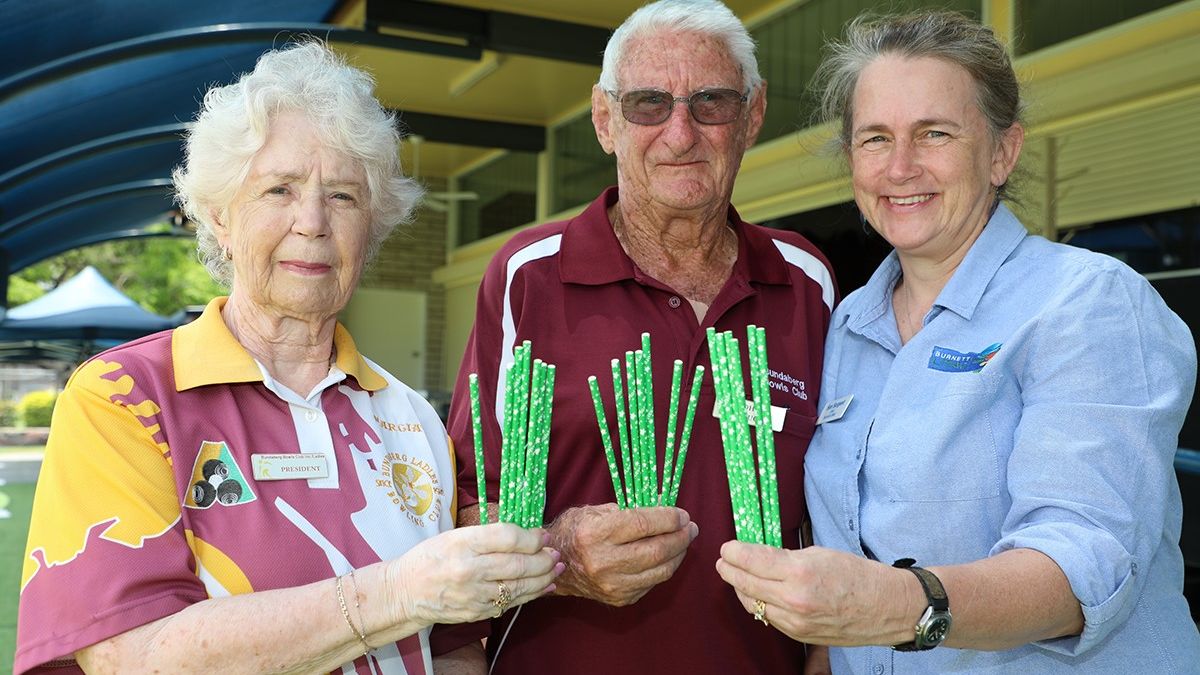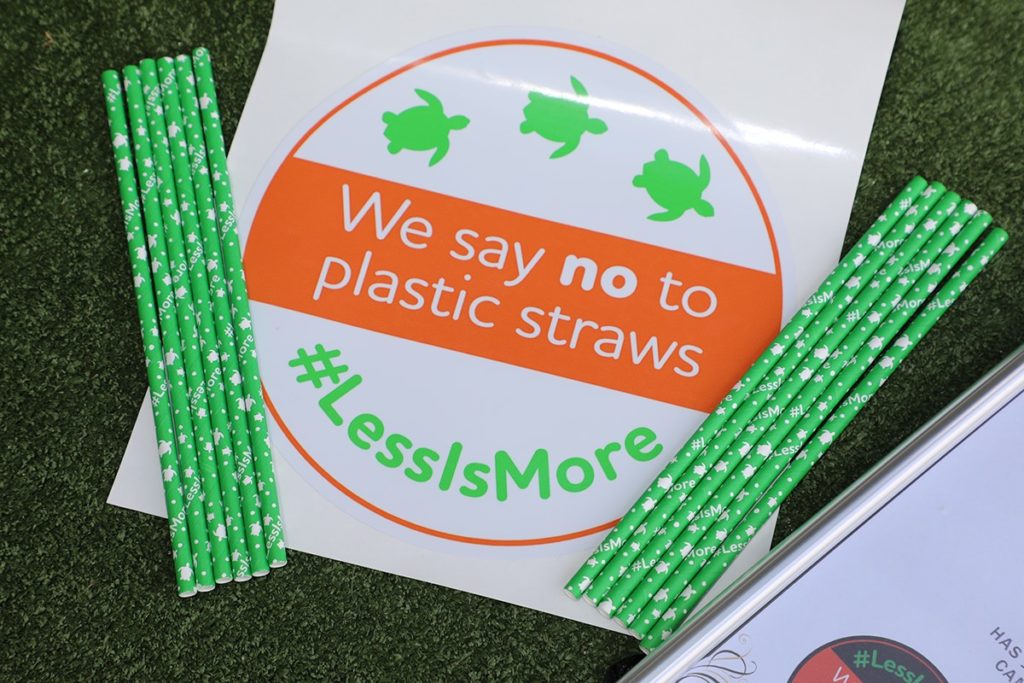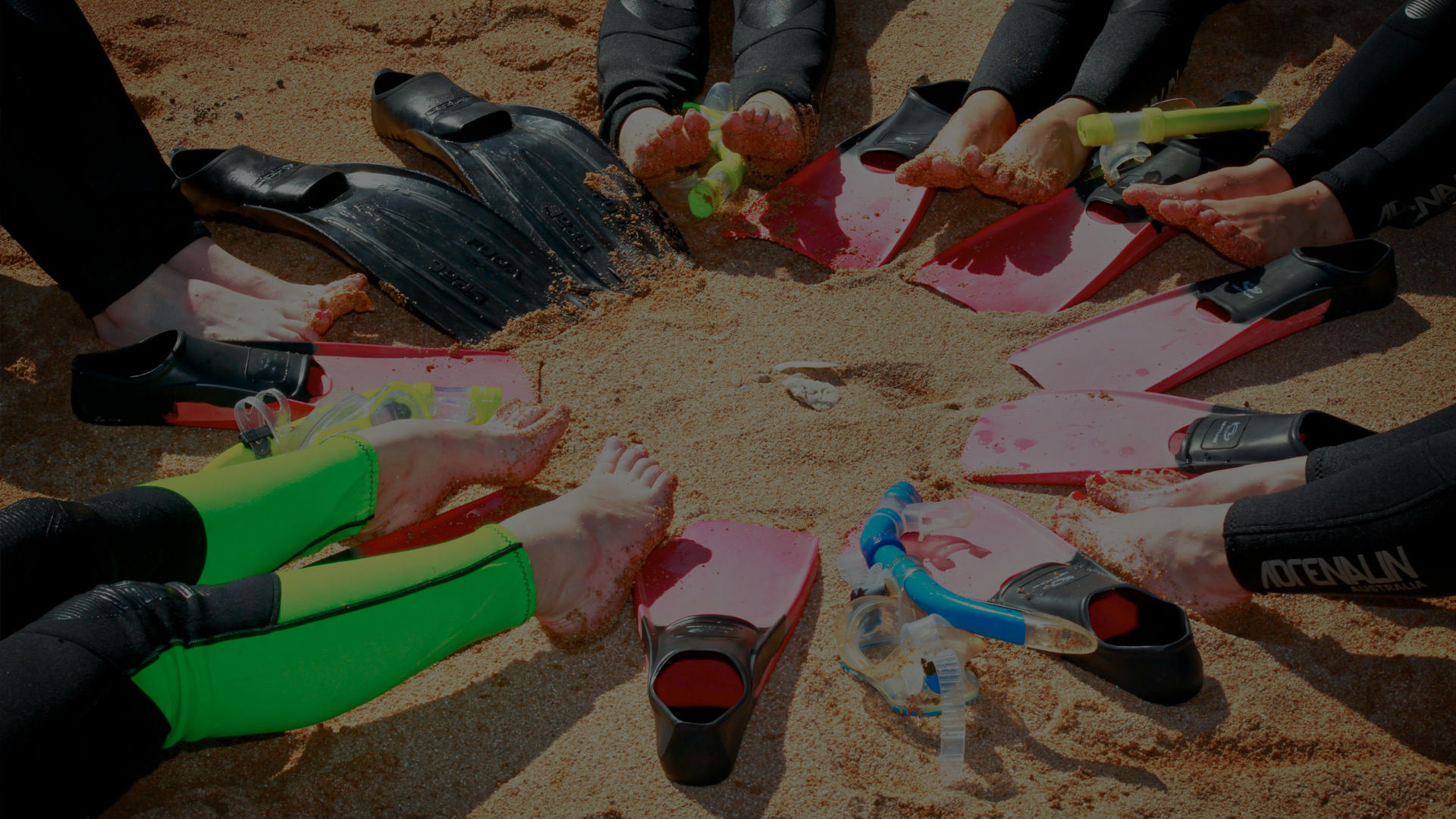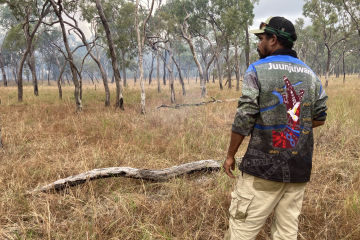Project News ·
Group swaps plastic straws for paper with #LessIsMore

In 2019, the Burnett Local Marine Advisory Committee (LMAC) started their #LessIsMore for the Great Barrier Reef Campaign.
Supported by Bundaberg Regional Council and #LoveBundy, the Burnett LMAC has now commissioned 100,000 special #LessIsMore straws to encourage people to make the right choice.
Funded by a Reef Trust Partnership Community Reef Protection grant, the project aims to initiate positive behaviour change for the Great Barrier Reef within our local community.
“Local farmers have already put in years of work to reduce their runoff of sediment and nutrients to the Great Barrier Reef but it’s time we all started taking some personal responsibility for our role in perpetuating environmental problems,” Burnett LMAC chair Sue Sargent said.
“Each of us makes decisions every day that on their own can seem meaningless, but together we can have a huge impact on the future of the Great Barrier Reef.”
Why swap plastic straws?
Sue said the #LessIsMore plastic straws campaign focused on the ubiquitous plastic straw.
“According to Clean Up Australia, Australians use about 10 million straws every day, or 3.5 billion a year,” she said.
“Most straws are used just once, for around 15-30 minutes, and then thrown away. Plastic straws are the 12th most common item reported by Clean Up volunteers.”
Sue said plastic does not biodegrade in the ocean.
“Instead, it can last up to 400 years, gradually breaking up into smaller pieces called microplastics,” she said.
“Microplastics can be eaten by the smallest phytoplankton through to the biggest whale. Some may end up back on your plate in your seafood.
“Microplastics and plastics can block digestive tracts of marine life including turtles and seabirds and reduce their urge to eat, causing some species to starve and die.”
What is #LessIsMore?
Speaking to local businesses, Sue said she found that there were three main things that were stopping retailers from making the move from plastic to paper.
“Convenience – most people ordered straws in bulk in cartons of 5000 to 10,000 and didn’t want to waste their current supplies,” she said.
“Durability – paper straws were not considered as durable a product as plastic and retailers were worried about their customers.
“Cost – plastic straws cost under 1 cent while paper straws cost 1-2 cents each.”
However, Sue said most retailers and schools the project team spoke to were worried about the environmental issues of plastic waste and were keen to look at alternatives.
They straws are made from three-ply premium grade FSC-certified paper sourced from managed plantations, carbon neutral, recyclable, commercially and home compostable.
“We provided some samples to local cafes and business owners were really pleased with how long the straws were lasting. So that took out the issue of durability,” Sue said.
“The next issue that had to be overcome was convenience and what to do with existing supplies of plastic straws.
“Retailers didn’t want to see their straws end up in landfill.”
Sue said that's when Bundaberg Fruit and Vegetable Growers, who sponsored the project, offered to store collected plastic straws which would then be re-purposed for local art projects.
She said with 100,000 turtle-customised #LessIsMore straws now on offer, the straw swap has commenced with local businesses and schools.

“Our first adopter was the Bundaberg Bowls Club with their 500 straws. Members were acutely aware how close the club was to the river and how easy for their straws to end up where they shouldn’t,” Sue said.
“But we have also been lucky to attract participants including Allowishus (who had already made the change to an eco-straw but didn’t know what to do with their remaining plastic straws) and local schools such as Gooburrum and Kalkie State Schools.
“Once a school or business offers to participate, they sign a pledge that they will continue to be plastic straw free and are provided with a sticker to display.”
Sue said replacement BioPak straws could conveniently be ordered online and the project team acknowledged that although paper was still more expensive than plastic, this did not include the environmental cost of using plastic straws.
“Everyone can make a personal choice to say no to a plastic straw and know that they are making a decision that supports our local marine life and the future of the Great Barrier Reef,” she said.
To find out more about the Burnett LMAC’s Plastic for Paper Straw Swap or the #LessIsMore project, contact Sue Sargent burnettlmac@gmail.com or 0429 462 041.
The Burnett LMAC’s #LessIsMore project is funded by the partnership between the Australian Government’s Reef Trust and the Great Barrier Reef Foundation.

#What can you do to help?
Right now, you can get involved in projects that deliver on-ground action to reduce Reef threats and increase Reef resilience.
#Related

Project News ·
Community at the forefront of Reef water quality protection

Project News ·


